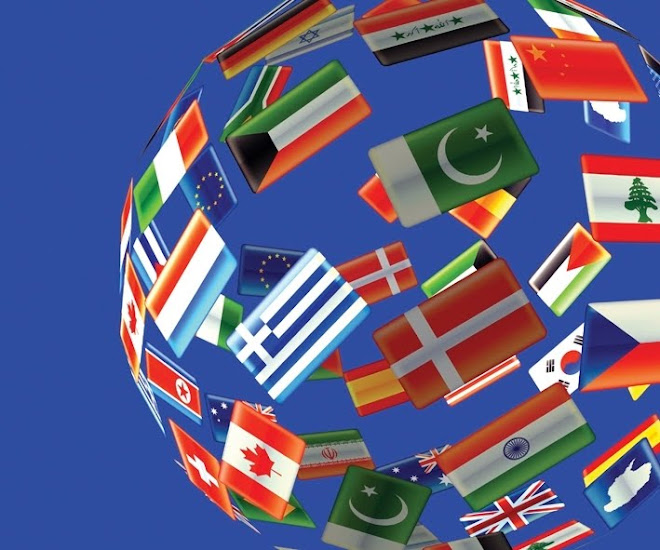I mean this post in both a serious and a humorous sense. I know it will hit home (and maybe feel offensive) to many readers because most of us send and receive text messages to some degree and are not particularly concerned with how well we write when we do text. I think that many of us successfully separate our casual writing in texting from the care we take with our writing when it's important to do so. But I also think it's important that we occasionally stop to think about the habits we can fall into and both their value and their potential damage.
That said, while this is not a political post, I want to give a hearty thanks to Niall Ferguson for his article,
That said, while this is not a political post, I want to give a hearty thanks to Niall Ferguson for his article,
"Texting Makes U Stupid" (Newsweek, September 19, 2011 http://www.thedailybeast.com/newsweek/2011/09/11/how-will-today-s-texting-teenagers-compete.html). In my opinion, he is right on the money. The longer I live the more I'm convinced that the most important of the three "Rs," just like we all learned, is reading. Next of course is writing. But to be a good writer, one has to read...a lot...to absorb and learn the craft from other writers, and the great writers.
Writing is the skill of telling a story in permanent form, extrasomatically, meaning manually, outside our brains. The Sumerians invented writing in 2000 B.C., and they perhaps unwittingly gave humanity the best technical tool for learning and documenting that our species has ever, and probably will ever know. The beauty of writing involves the brilliant skill of putting complete words together to form mental imagery absent the presence of the actual storyteller. One key word in the preceding sentence is the word "complete." The best writers use complete words as well as a creative and rich vocabulary.
Texting is usually not complete words, but a short-cut version of writing and is about as far from skillful writing as ketchup is from a healthy vegetable. The pleasure of texting is rapid, amusing, and casual communication anywhere in the world. But it is really only entertaining and fast at best. The best part of course is that it makes global communication nearly immediate. The dangers and worst parts of texting are that the writing is often extremely poor, and it can create terrible writing habits in the user which can then transfer into other forms of communication like e-mail and actual typed documents. By the way (not BTW), "email" is also a shortcut and should not be a word. E-mail stands for "electronic mail" and therefore the "e" should be separated from the word "mail" by a hyphen.
I know from personal experience about the probable effects of texting on the skill of writing. I taught Music Appreciation at the college level for two years and assigned the students research papers. The writing, on average, was horrible. Not only did the students probably not even bother to run the "Spellcheck" (which is still leaving to the computer what one should be doing themselves, proofreading), but I found many instances where the students used texting shortcuts, and they had not the faintest idea of how to put words, sentences, paragraphs, and the format of pages together to create a mature and riveting narrative. This is not only a pity, it's a tragedy. A general poor writing education and the habit of texting in shortcut writing (and even quick e-mailing) rather than writing carefully is not only robbing today's young people of a fundamentally necessary skill, it's robbing future generations of the ability to learn about them through their excellent writing. How do today's young people think that their writer ancestors were able to tell them about their own lives so well? Ironically, though we think that today's computer technology is an advancement, our ancestors were probably better off that they were less technologically advanced in this way. They were able to become great writers because the technology that they were limited to forced them to use their brains more than their gadgets. They didn't have speedy devices like cell-phones and computers, so they had to rely on their minds and their pens. And yes, many of them could write with pen and ink and not make mistakes because they were used to thinking more slowly and they made less errors as a result. One look at the original (or a copy of the original) Constitution and the Declaration of Independence proves the ability and skill with just pen and paper. (Incidentally, I have copies of a couple of letters that my grandfather Lee wrote to his son, my Uncle Frank, in pen. The handwriting is fairly clean and the vocabulary is superb, even for just a personal letter. And the paper has no lines and the writing is straight across the page.)
Good, clear thinking takes time, and great writing requires both. Texting requires neither and the technology supports that. The speed and ease of computers has created a hidden but devastating double-edged sword. It feels pretty wonderful to be able to communicate with anyone anywhere in the world at lightning speed. But the very two things that are valuable for deep learning, time and clear thought, are essentially obliterated by that ease and speed. I would argue with Mr. Ferguson that the gain in speed and ease of communication is not worth the complete loss of the time and clear, skillful thinking necessary to keep all of us writing at our best.

No comments:
Post a Comment